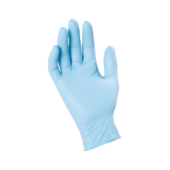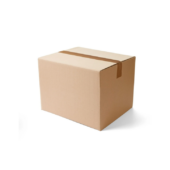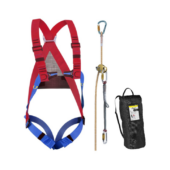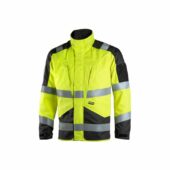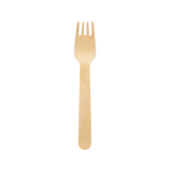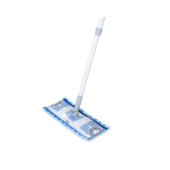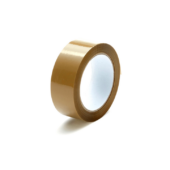Industrial cleaning equipment for glassware is essential in industries such as pharmaceuticals, laboratories, food production, and manufacturing. Selecting the right equipment can improve cleaning efficiency, maintain product quality, and ensure compliance with strict hygiene standards. This guide provides a comprehensive breakdown of factors to consider when choosing glassware cleaning equipment for industrial purposes.
1. Understand Your Cleaning Requirements
Finding your particular needs will help you to choose industrial glassware cleaning tools. Think on the following elements:
- Type of Glassware
Evaluate the dimensions, shapes, and fragility of the glassware you use. Items like test tubes, beakers, and intricate laboratory glassware may require specialized handling. - Volume of Cleaning
Assess the quantity of glassware cleaned daily. High-volume operations need equipment capable of processing large batches efficiently. - Cleaning Standards
Review industry-specific rules. For instance, pharmaceutical and lab settings can call for strict cleaning standards requiring sterilisation free of residue.
2. Types of Glassware Cleaning Equipment
Your operating need will determine the correct kind of equipment you need. The following are typical kinds of glassware cleaning appliances:
| Equipment Type | Key Features | Suitable Applications |
| Laboratory Washers | Automated systems for precise cleaning | Laboratories, research centers |
| Ultrasonic Cleaners | Use ultrasonic waves to remove contaminants | Intricate or fragile glassware, such as pipettes |
| Spray Washers | High-pressure water jets | Industrial settings with large glassware |
| Manual Cleaning Stations | Hands-on cleaning setup | Small-scale or specialized operations |
Each option has unique advantages, and the choice depends on your workflow and glassware characteristics.
3. Evaluate Cleaning Performance
High cleaning performance is critical to achieving operational efficiency. Focus on the following factors:
- Temperature Control
Equipment with adjustable temperature settings ensures optimal cleaning and drying for various contaminants, such as grease, oil, or chemicals. - Chemical Compatibility
Verify that the machine can handle industry-approved detergents and disinfectants without causing damage to glassware. - Residue Removal
Look for equipment designed to prevent detergent or residue buildup, ensuring the glassware remains safe for use.
4. Prioritize Energy Efficiency and Sustainability
With growing environmental concerns, selecting energy-efficient equipment can reduce operational costs and meet sustainability goals.
- Water and Energy Usage
Opt for machines that use minimal water and energy without compromising cleaning quality. - Eco-Friendly Features
Consider systems with recycling capabilities for water and cleaning solutions.
5. Consider Automation and Programmability
By reducing hand-off, automation increases output. Search for the following:
- Preset Programs
Machines with preloaded cleaning cycles designed for various types of glassware. - Customizable Settings
Options to fine-tune cleaning intensity, duration, and drying cycles. - Touchscreen Interfaces
Easy-to-use control panels for better operator convenience.
6. Verify Build Quality and Durability
Investing in industrial equipment means betting on the long haul. Make sure the machine is sturdy enough to endure regular use by using high-quality materials.
- Stainless Steel Construction: Resistant to rust and corrosion, ensuring longevity.
- Reinforced Components: Durable parts like nozzles and spray arms for consistent performance.
- Maintenance Requirements: Check whether the equipment requires frequent maintenance or has easily replaceable parts.
7. Compare Pricing and Long-Term Costs
While upfront costs are important, also factor in long-term expenses like maintenance, spare parts, and energy consumption.
- Initial Purchase Cost: Although they could cost more, sophisticated feature machines usually offer better value over time.
- Operational Costs: Calculate the cost of consumables, such as detergents, filters, and energy.
- Make sure the provider provides thorough after-sales support with technical help, warranties, and service contracts.
8. Ensure Compliance with Safety Standards
Equipment must meet safety and hygiene standards required for your industry. Check for certifications such as:
- CE Marking (European Conformity)
Ensures compliance with EU safety, health, and environmental protection requirements. - ISO Certifications
Verify ISO 9001 for quality management and ISO 14001 for environmental management.
9. Supplier and Manufacturer Considerations
To make sure you get good products and solid service, choose a supplier or manufacturer you can trust.
- Reputation
Research customer reviews and case studies from industries similar to yours. - Availability of Spare Parts
Suppliers should maintain a stock of replacement parts to minimize downtime. - Customization Options
Some manufacturers provide equipment with flexible configurations for unique requirements.
10. Optimize Workflow Integration
Integrating the cleaning equipment into your existing workflow can enhance efficiency.
- Installation and Space Requirements
Assess the space available and check for easy installation options. - Connectivity
Machines with IoT capabilities can integrate with your management systems for monitoring and reporting. - Training and User Manuals
Ensure the supplier provides training for your staff and detailed user manuals for reference.
11. Frequently Asked Questions
Q1: Can all glassware be cleaned with ultrasonic cleaners?
Ultrasonic cleaners work well on delicate and complicated items, but they might not be the best choice for heavy or big glasses.
Q2: How often should industrial glassware cleaning equipment be maintained?
When to do regular maintenance depends on the type of tools and how often it is used. To get the best results, do what the manufacturer says.
Q3: Are energy-efficient machines more expensive?
Even though energy-efficient tools may cost more at first, they usually cost less to run in the long run.
Conclusion
Selecting the right glassware cleaning equipment requires understanding your specific needs, evaluating technical features, and ensuring compliance with safety and environmental standards. By balancing performance, efficiency, and cost-effectiveness, you can choose equipment that enhances productivity while meeting industry requirements.




